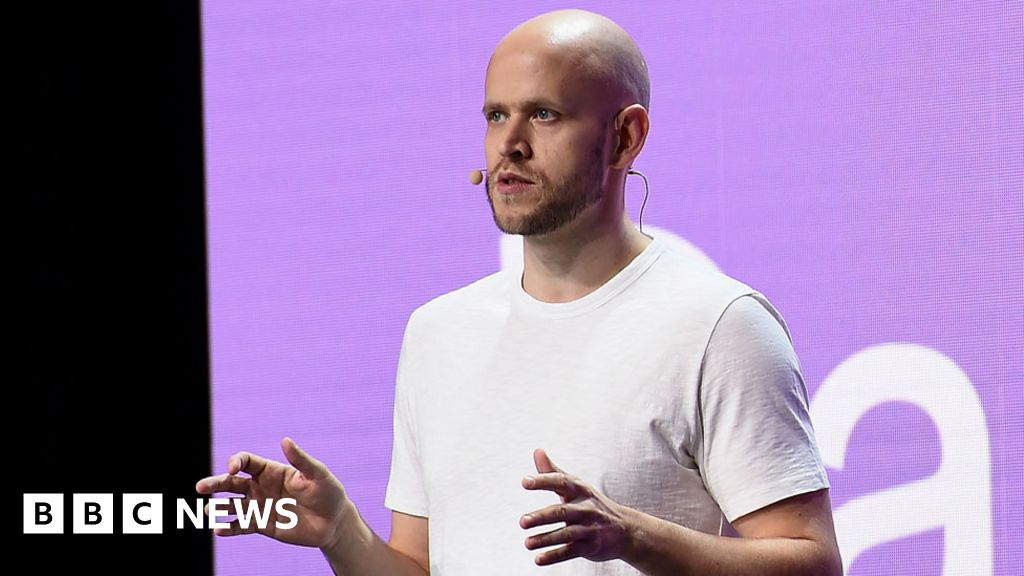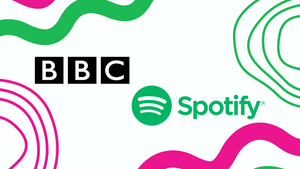Spotify boss Daniel Ek has been talking to the BBC about AI-generated music, reckoning that - as music-making generative AI gets more sophisticated - it's going to be "tricky". Although, when AI is used to replicate an artist's voice without said artist's approval, that's more straightforward: that's not OK.
This seemingly means that Spotify will remove unofficial tracks that clearly imitate other artists, like the headline-grabbing Ghostwriter track from earlier this year that imitated Drake and The Weeknd.
As for how Spotify will spot tracks like this - and know whether or not they are endorsed by the imitated artist - that in itself seems quite “tricky”. But Ek reckons his monitoring teams are up to the task.
"We've seen pretty much everything in the history of Spotify at this point with people trying to game our system", he told the BBC. "We have a very large team that is working on exactly these types of issues".
As for other uses of AI to generate music, artists using AI to assist in the music-making process is obviously all fine, Ek mused. Where AI entirely generates new music, but does not directly imitate any one artist, well, that's the "tricky" bit presumably.
However, whatever your view on that, Ek stressed that tech companies currently developing music-making generative AI models cannot scrape music that is on the Spotify platform to help with the training process.
Spotify is also busy developing its own AI tools, of course. And just yesterday it announced it is piloting Voice Translation for podcasts, what it calls "a groundbreaking feature powered by AI that translates podcasts into additional languages - all in the podcaster’s voice".
"This Spotify-developed tool", the streaming service added in its announcement, "leverages the latest innovations - one of which is OpenAI’s newly released voice generation technology - to match the original speaker’s style, making for a more authentic listening experience that sounds more personal and natural than traditional dubbing".
"A podcast episode originally recorded in English can now be available in other languages", it explained, "while keeping the speaker’s distinctive speech characteristics".
So that's fun. Ek also spoke about podcasts in his BBC interview, although not in the context of AI. There have been cut-backs in Spotify's podcasting division of late, including the ending of some high profile podcast partnerships.
Alluding to that, Ek admitted that, with his company's big push into the podcasting business, "some of it has worked, some of it hasn't".
However, he added, "five years ago Spotify was nowhere in podcasting", and now it is a significant player and a major competitor to Apple in a sector where the tech giant previously dominated.
Talking of Apple, Ek also used his BBC interview to talk about Spotify's big lobbying priority of the moment, that being its efforts to block the Apple tax. Which was fair enough, his UK trip was mainly to discuss new regulations stemming from the just passed Online Safety Bill and the in development Digital Markets, Competition And Consumers Bill.
It’s well known that Spotify objects to rules enforced by Apple and Google that force app-makers to use those companies’ commission-charging transaction systems when taking in-app payments on iOS or Android devices.
Many app-makers - Spotify included - want regulators to force Apple and Google to drop those rules, so that they can use their own in-app payment systems and avoid paying a 15-30% commission.
"We are in a situation where literally two companies in the world control how over four billion consumers access the internet", Ek told the BBC.
"If you think now on a company like Spotify, where we already pay out almost 70% of our revenues back to the creative community. If we were to take the 30% out of our cut it essentially means we're left with zero, which means we have to close shop".



